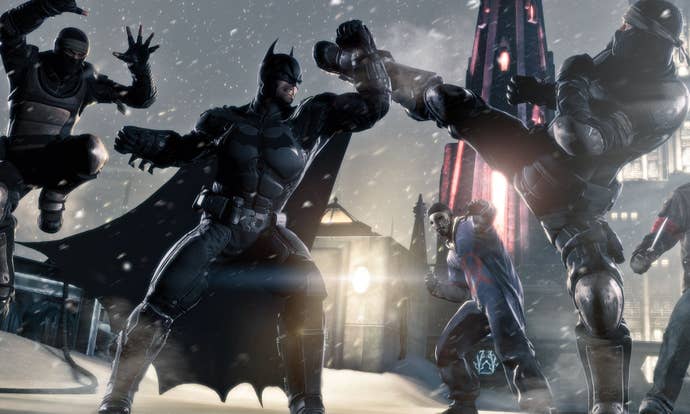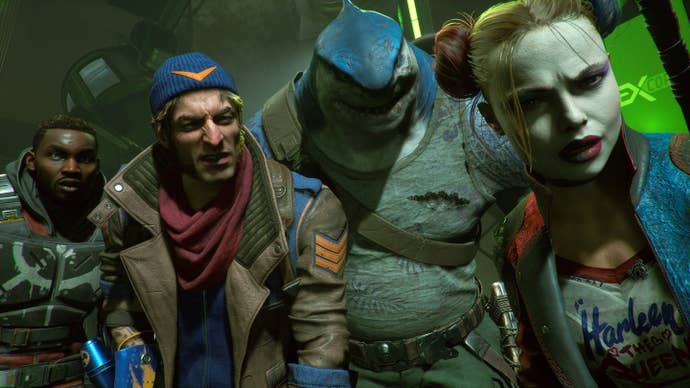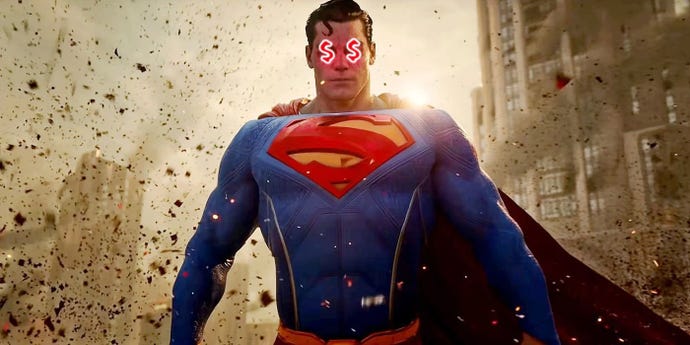Suicide Squad: Kill The Justice League shows how shareholder culture is killing AAA
By wasting Rocksteady’s pedigree and talent on live service guff, the quest to fatten dividends may have robbed us of a good Arkham follow-up.
What on earth happened to Suicide Squad? Alex and I discuss in the video above how Rocksteady’s long-awaited return to the Arkhamverse strays disappointingly far from the formula that made them a success story.
Of course, we didn’t expect (or necessarily want) another Arkham game. The law of diminishing returns was in full effect by the time Arkham Knight rolled around. The odd rumour bubbled up about a Superman game, or a Justice League game, in a similar vein. Quite how that would have worked isn’t clear, although it’s not hard to see how, over the best part of a decade, those initial ideas might have morphed into Suicide Squad: Kill The Justice League.

However we got here, though, one thing is clear: this game is about five years late to the party. Enthusiasm for superhero stuff, in general, is on a massive decline. We saw evidence of this last year with Marvel’s Midnight Suns: a fantastic game from a beloved studio which simply didn’t do the numbers. Anecdotally, from what we’ve gathered from comments etc on our own coverage, this could well be attributed to the fact that a lot of people are just so burnt out on Marvel after umpteen years of the MCU (another prominent example of the law of diminishing returns, quite literally in the case of Ant Man’s recent box office collapse).
Yeah, that’s Marvel, but people are, if anything, even more weary of DC, whose abortive and fractured film universe has been floundering from the start. Margot Robbie’s Harley Quinn is a rare bright spot, but as Alex notes, that interpretation of the character is wearing a bit thin now.
So on those terms, a Suicide Squad adaptation arriving years after two (or three, depending on your outlook) crap-to-mid movies doesn’t seem like the most nailed-on proposition. But that doesn’t necessarily mean it’s bad. With talent like Rocksteady at the helm, and the killer concept of having to take down an alien-possessed Justice League, it actually could be something special. As long as they don’t do something stupid like turn it into a live service shooter, and release it into a market saturated with live service shooters.

The Destiny-fication of everything is surely fed by the quest to fatten dividend payouts, rather than any creative decision making. There is certainly an argument to be made for the Suicide Squad as video game protagonists, with their distinct personalities and abilities. But from what we’ve seen of the gameplay, very little of this is leveraged outside of cutscenes. King Shark shoots guns. Boomerang shoots guns. Harley shoots guns. Spraying bullets into glowing purple damage spots as a four-piece is, frankly, tedious. And about a million miles away from the multi-faceted gameplay that people loved about the Arkham games.
Not that live service shooters are automatically bad. They’re certainly not without success: Destiny and Warframe prove that the model can be wildly successful, and critically acclaimed at that. But live-service games seem more notable for the genre’s failures than its successes, not least in a year when dozens of them were sunsetted in quick succession as it became clear that the market just wasn’t interested.
Shareholders, though, are addicted to trends. They demand growth, and because quality or innovation are risky bets for driving numbers up, the preferred way to satisfy demand for growth is to throw a dart at a list of current buzzwords and doggedly pursue whatever it lands on. For a while, it was toys-to-life. MOBAs. Hero Shooters. Eons ago, it was GTA clones. Whatever it happens to be at the time, it isn’t necessarily a bad thing for creativity: some of the most brilliant games have emerged from a talented studio figuring out how to stuff concept Y into framework Z (The Simpsons Hit & Run, we’ll never see its like again).

But the current live-service trend is a scourge, and rather rudely, it doesn’t even stay in its own lane as a thing that bubbles away in a corner while I can happily ignore it. Because single player games, long predicted to die out as it becomes more lucrative to jack people into vending machines for cosmetic hats that are cunningly disguised as co-op shooters, are becoming infected with this nonsense too. In the case of Suicide Squad, I heavily suspect, it has essentially robbed us of an Arkham follow-up that would have been, in fact, in the spirit of Arkham Asylum et al were it not for a business demand for the publisher to have its own version of That Thing.
Caveat: we haven’t played Suicide Squad yet. It could just be that they’ve chosen to show us the most uninspiring footage so far, for whatever reason. Maybe the shooting feels great. Maybe this will be a four-player co-op game that actually does play just as nicely in solo mode. We’ll have to wait and see. But experience tells us that it’s probably going to be dire, and once again, the ramifications of that will be painful for the industry as a whole.

